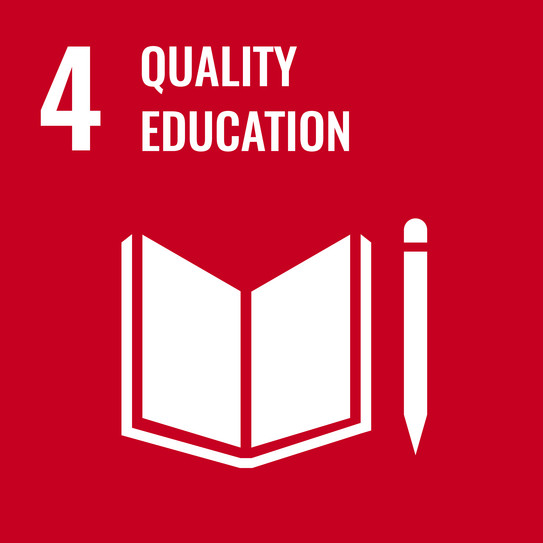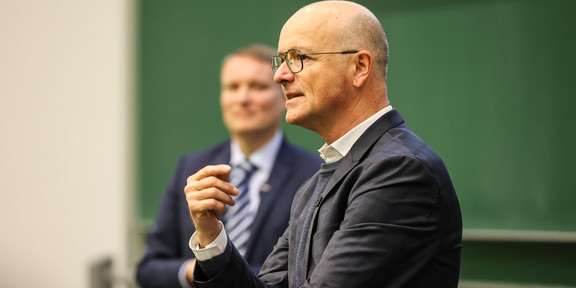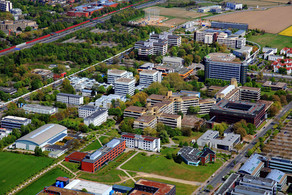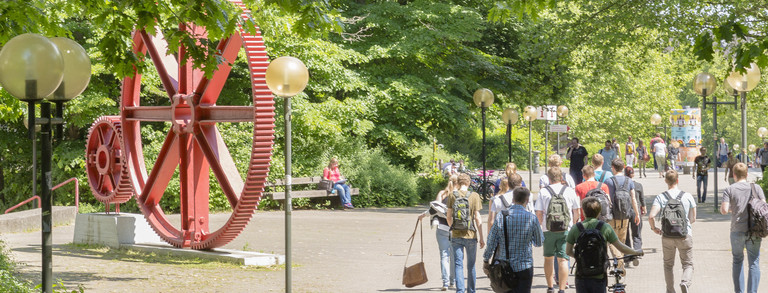Goal 4: Quality education
The goal is divided into several sub-goals. The first sub-goals cover lifelong learning from early childhood education and care, primary education, university and vocational education (4.1 - 4.4). Likewise, gender equality and inclusion are to be promoted (4.5) and illiteracy is to be combated (4.6). Sub-goal 4.7 aims to provide education for sustainable development to all learners. To this end, educational institutions are to be built and expanded (4.a), significantly more university scholarships are to be awarded to people from developing countries (4.b) and the supply of qualified teachers is to be substantially increased (4.c).

News on Quality Education
Lecture by Karsten Schwanke on climate change
- News
- 4 Hochwertige Bildung
- Nachhaltigkeitsbüro

Already the welcome by the rector Prof. Dr. Manfred Bayer made it clear that this event would not only be about teaching theory, but also about the connection to daily activities and actions - be it personally or as an institution. In his rousing lecture, Karsten Schwanke proved that he knows the facts - even beyond his narrower field of expertise - and also knows how to convey them. In his own humorous, approachable and empathetic manner, he combined the facts with personal observations, insights and current regional references. He also provided suggestions for journalistic training or press work. Host Stephan Lütz, Dean of the Faculty of Bio- and Chemical Engineering summed it up aptly with the introduction of a new unit of measurement for activation energy at the farewell: "A 'Schwanke' activates a lecture hall." The lecture was followed by a lively discussion.
Schwanke's lecture took place as part of the lecture series Climate: Change, Values, Science, which for the past three years has provided students and the interested public with basic knowledge about the climate crisis and climate protection. The lecture series is part of the certificate "studium oecologicum" of TU Dortmund University, which was designed in cooperation with the sustainability office.




